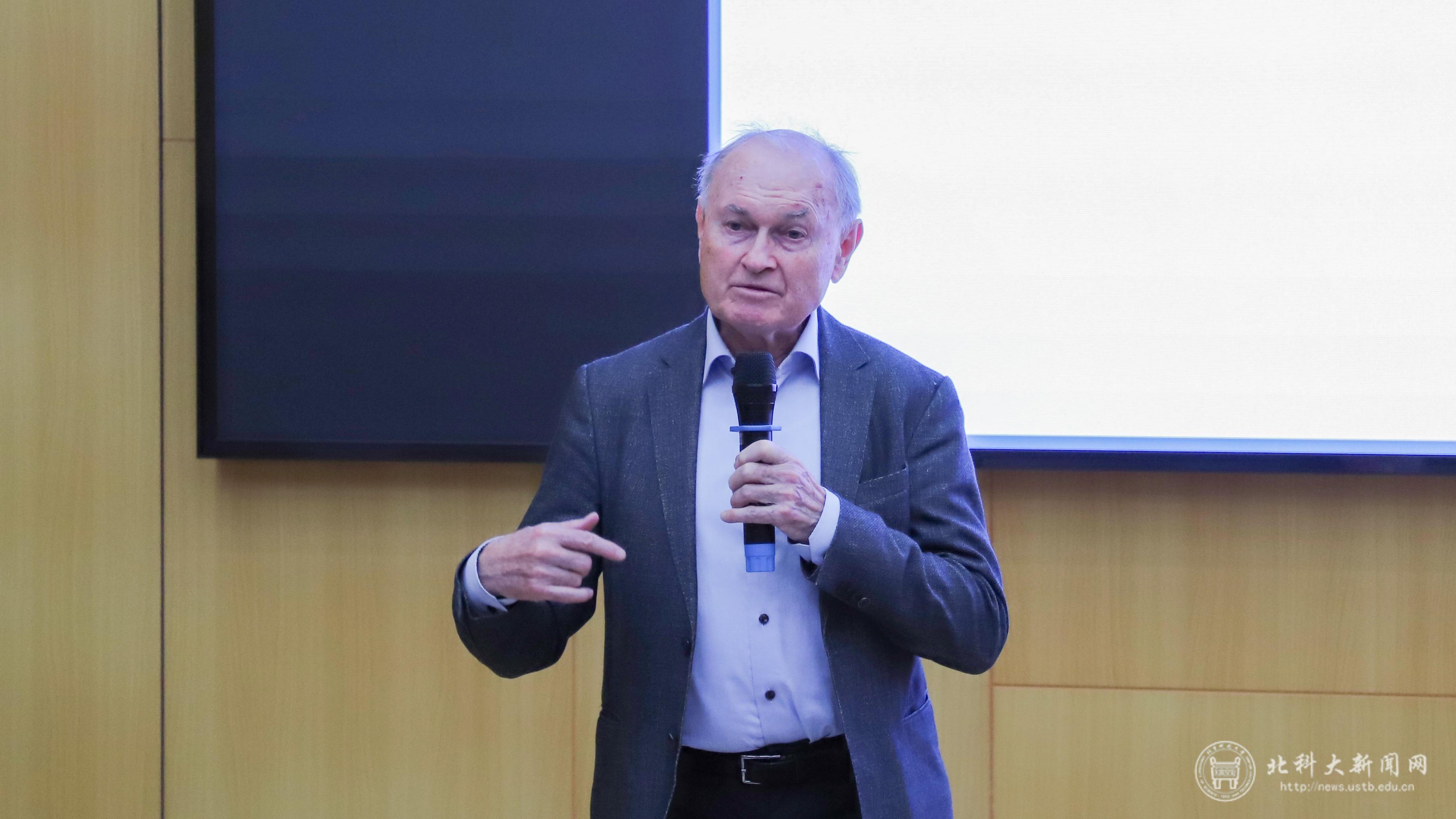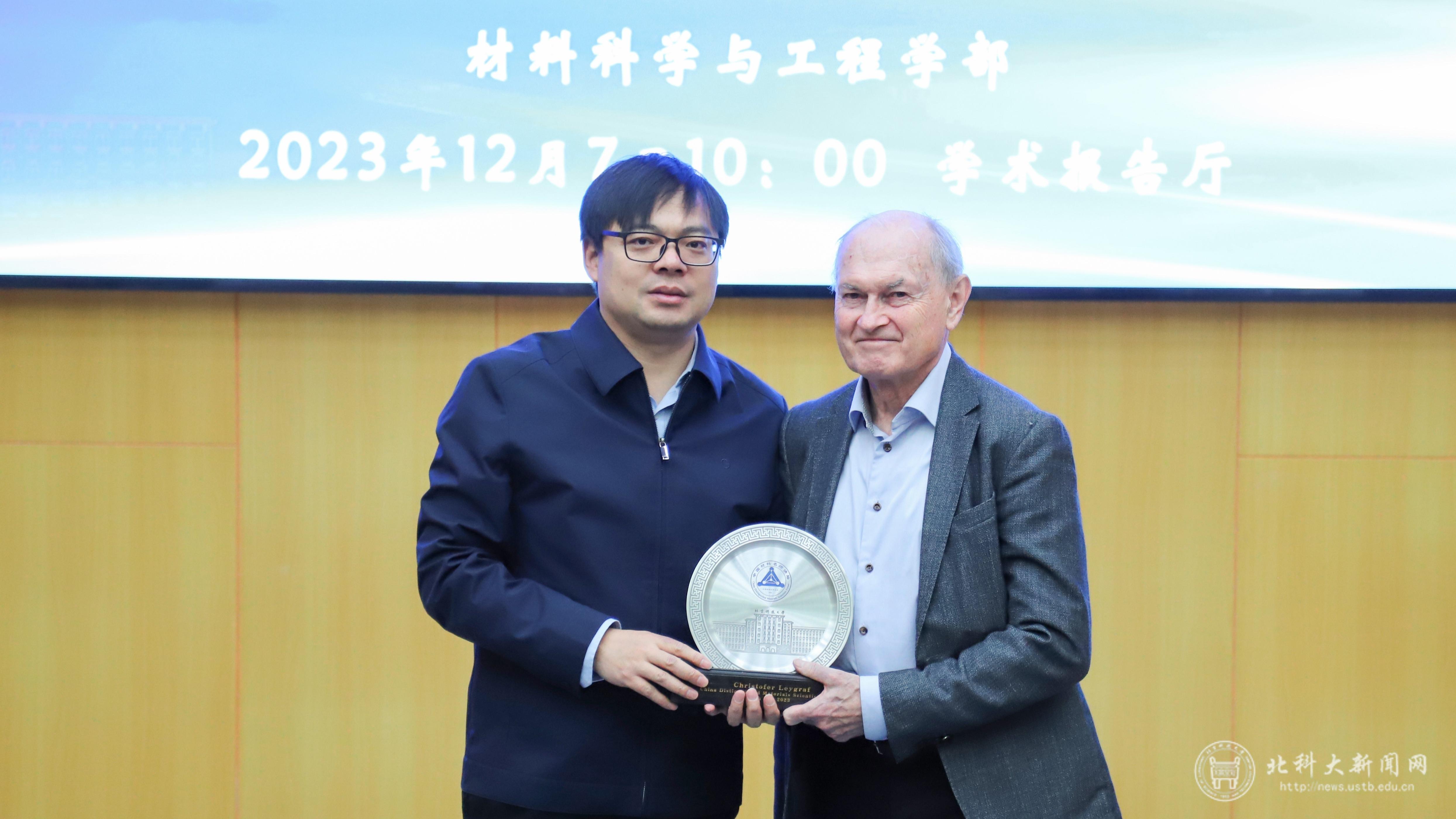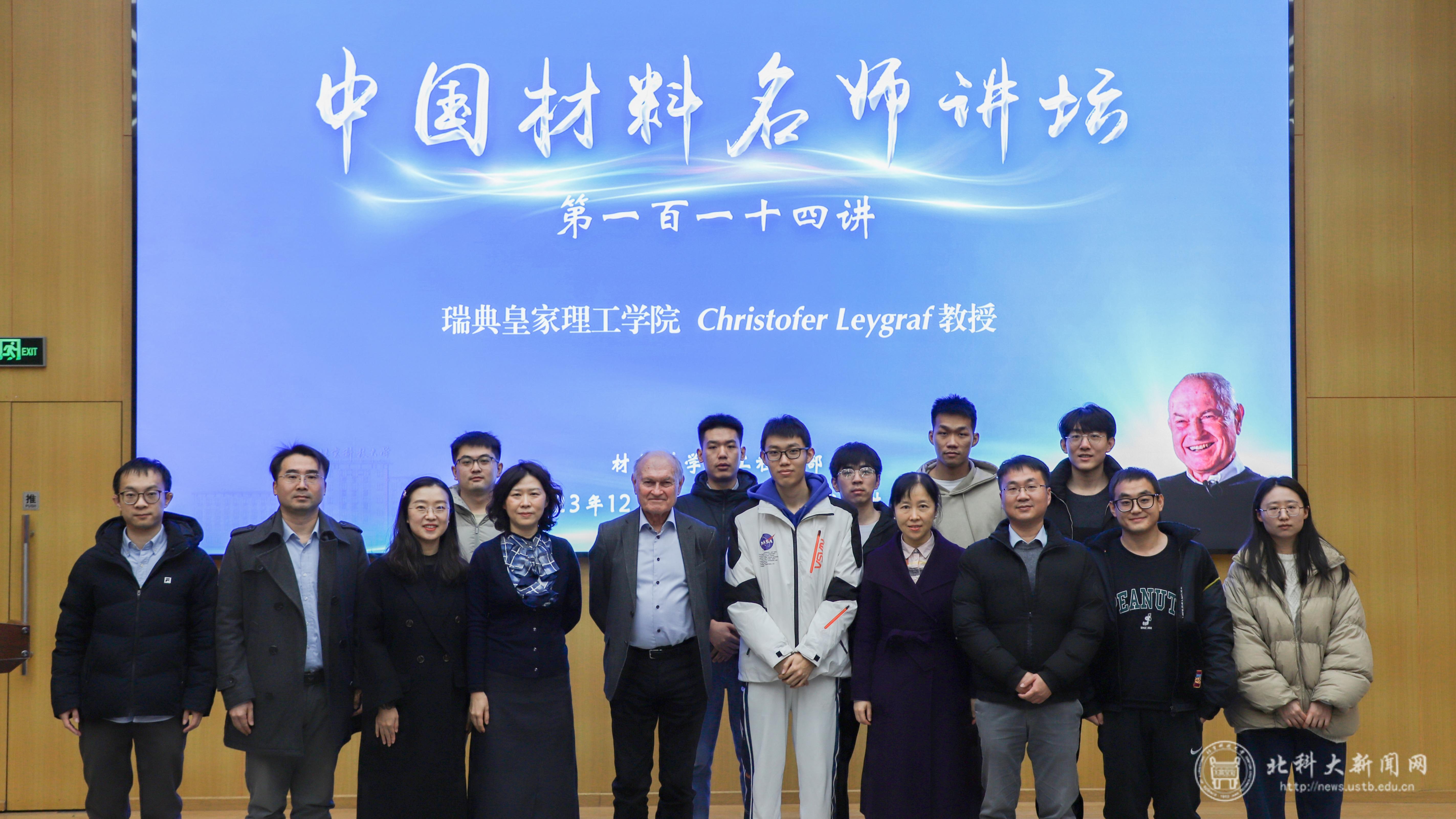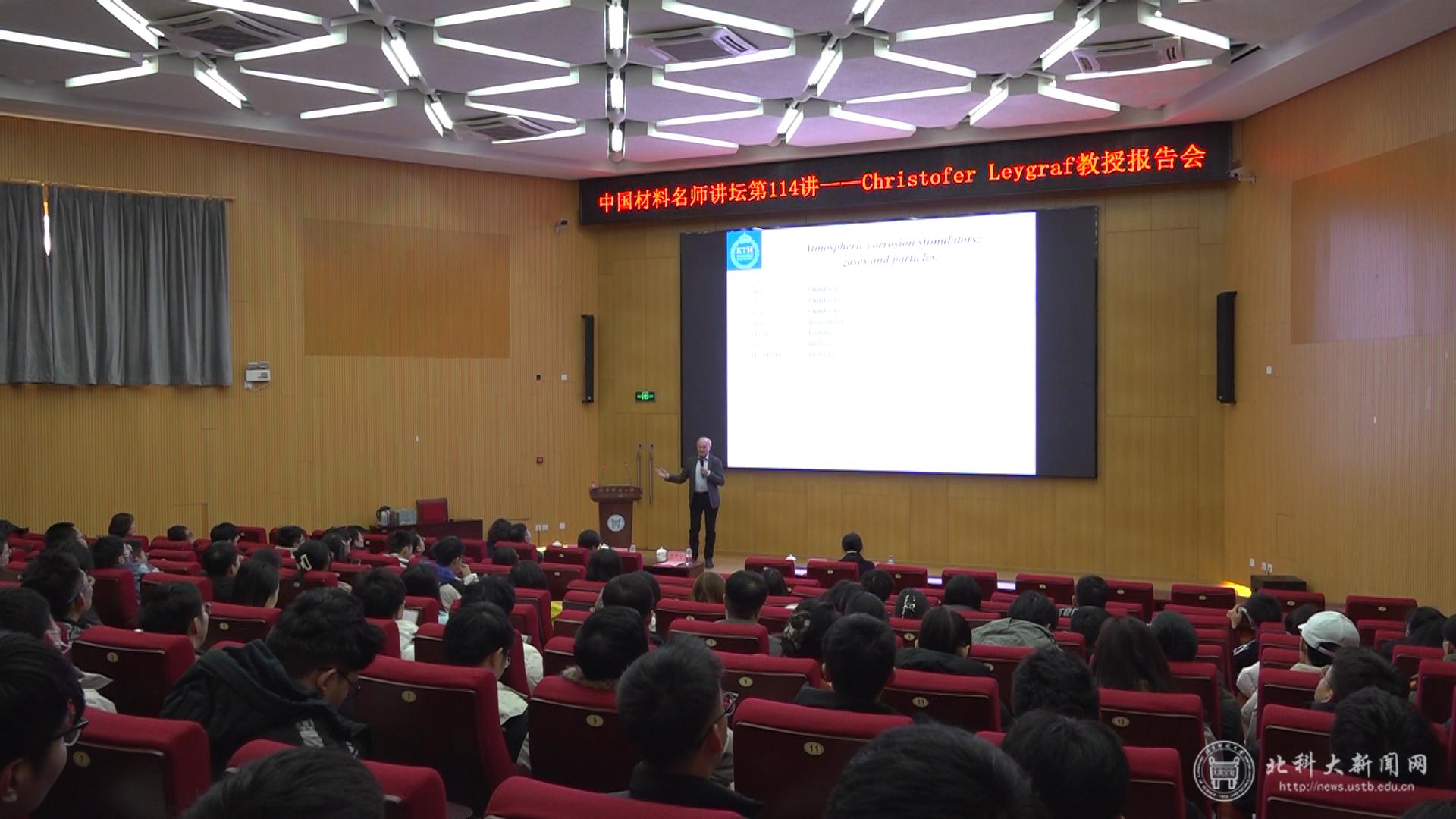News and events from USTB about research, science and technology, social science, art,
faculty and staff, students life and issues happening all around the world.
Topics
Date
Views



On December 7th, the 114th China Distinguished Materials Scientists Forum was hosted at USTB Academic Conference Hall. The Forum invited Prof. Christoger Leygraf, an Academician of the Royal Swedish Academy of Sciences, to give an academic report themed Atmospheric Corrosion: Advancements in an Evolving Research Field. Prof. LIAO Qingliang, Dean of the School of Materials Science and Engineering, Prof. DONG Chaofang, Associate Dean of the Institute for Advanced Materials and Technology, and Prof. JIN Ying, Associate Director of the National Center for Materials Service Safety, took part in the forum. Teacher representatives and nearly 200 students from relevant units of the materials division participated in the forum. Prof. JIN Ying hosted the report and introduced the scientific research field and academic achievement of Prof. Christofer Leygraf.
 Lecture given by Prof. Leygraf
Lecture given by Prof. Leygraf
Prof. Christofer Leygraf first listed some common challenges in the process of Atmospheric Corrosion Prevention. Later, he pointed out that atmospheric corrosion was the most complex corrosion form, which causes the largest harm currently. It includes atmosphere, water, solid, and other complex interface reactions, so it is necessary to conduct basic research on atmospheric corrosion. By introducing how to design in situ testing and how to choose appropriate technical methods to have an in-depth analysis of the process of atmospheric corrosion and displaying cases of macroscale to microscale studies, he helped teachers and students know the latest research methods and developments in atmospheric corrosion research. He also emphasized related work of multi-scale modeling and simulation and its role in revealing the nature of atmospheric corrosion, and showed the latest basic research results on the safety of copper shells in the long-term storage of spent nuclear power fuel and its enlightenment on the selection of storage schemes, and finally proposed the necessity of interdisciplinary crossover in the study of atmospheric corrosion.
 Prof. LIAO Qingliao presented the memorial plate to Prof. Leygraf
Prof. LIAO Qingliao presented the memorial plate to Prof. Leygraf
Prof. Christofer Leygraf prepared well for this report in plain language. After the report, Prof. Christofer Leygraf answered questions raised by teachers and students of USTB. Prof. Liao Qingliang presented the memorial souvenir of the China Distinguished Materials Scientists Forum to Prof. Christofer Leygraf on behalf of USTB.
 Group photo of participants
Group photo of participants
Since the beginning of the forum in 2003, 114 famous professors and academicians from home and abroad have given speeches at the China Distinguished Materials Scientists Forum, delivering excellent academic lectures and sharing about the frontier of the materials science discipline for over 20,000 students in the field of materials science. It is an academic brand activity of great significance and has enormous influence in USTB as well as the material field nationwide.
 At the Forum
At the Forum
The Speaker, Prof. Christofer Leygraf, is an Honorary Professor of the Royal Institute of Technology (KTH) and USTB. Prof. Leygraf mainly focuses on the research of basic scientific problems of metal materials corrosion in the atmospheric environment and water environment, developed and established the theoretical system in the field of atmospheric corrosion at the molecular level, and at the same time, developed a new characterization method of electrochemical corrosion system, making outstanding contributions to the development of traditional electrochemical and corrosion fields. Prof. Leygraf has published more than 400 papers with a total of over 16,000 citations. His book, Atmospheric Corrosion (John Wiley & Sons, 2016), co-authored with Prof. Tom Graedel, has been translated into various languages (including Chinese) and has been published around the world. He has won several international awards and honorary titles, including the H. H. Uhlig Award (USA) in 2003, the Khwarizmi International Award (Iran) in 2006, the Willis Rodney Whitney Award in 2007 (USA), the U.R. Evans Award (UK) in 2009, European Federation of Corrosion (short for EFC) Award in 2013, and Marcel Pourbaix Award (ICC) in 2017. He has supervised about 50 doctoral students to receive their Ph.D. degrees, three of whom have received the Morris Cohen Award presented by the Electrochemical Society for best doctoral thesis in the global corrosion field, which goes to only one doctoral student each year.
Draft: SHI Jingwen
Revision: CHENG Mingyuan
Topics
Date
Views